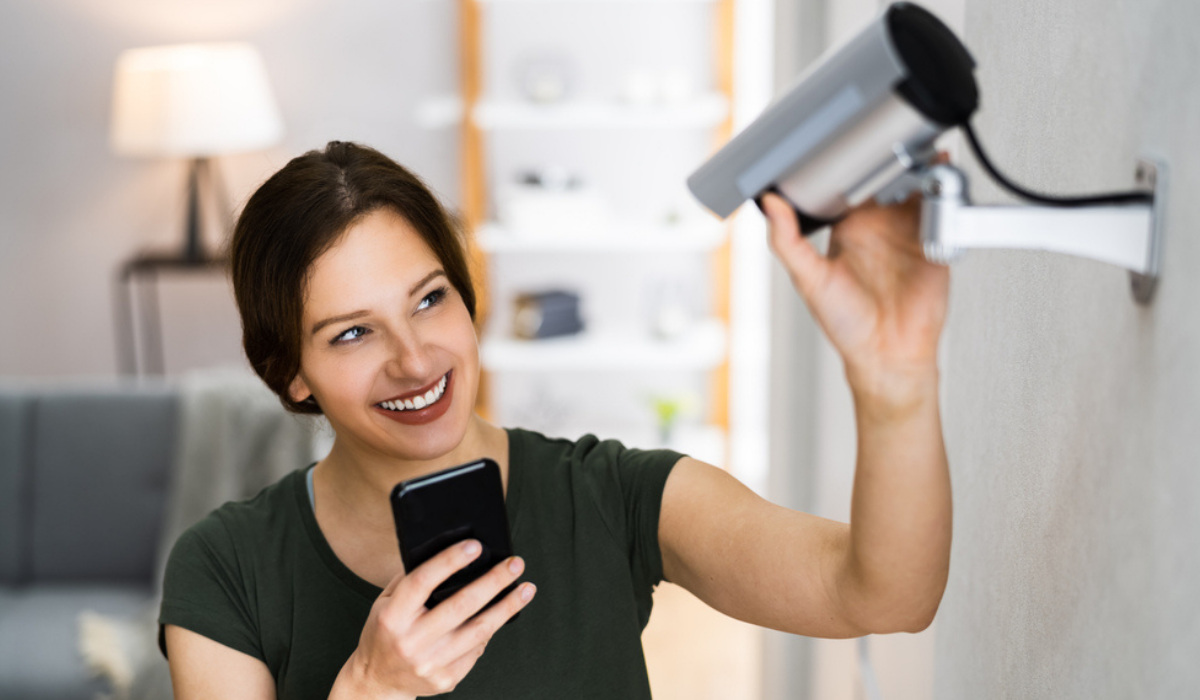
CCTV Surrey: Tips For Setting Up And Operating A CCTV System
Table of Contents
When it comes to security, the thought of burglars and thieves is always on the mind of most individuals. Most people also have a system of checks and balances in place when it comes to securing their homes and property. These systems often include things like motion detectors, alarms, and locks. However, some individuals feel the need to be more cautious and take security measures to the next level. It is at this level that home security systems like CCTV come into play.
CCTV stands for closed-circuit television. The system involves the usage of cameras to watch over a space or an area for security purposes. They are commonly used in large facilities with a large number of workers or residents such as hospitals, hotels, airports, schools, universities, etc. There are many benefits associated with having a CCTV system in your facility or home. In this blog, we will discuss all the benefits associated with having a CCTV Surrey in your home/facility.
Benefits of CCTV security systems
Commercial security cameras have revolutionized the way businesses monitor their premises and deter crime. These systems can help you monitor your business premises at all times, helping you detect suspicious activity and prevent any untoward incident. A CCTV system is also easy to set up and operate, making them ideal for small businesses. Moreover, these systems can be added to existing security measures, such as security cameras and locks, providing additional layers of protection. However, if you’re planning to buy a CCTV system, it’s vital to consider various factors before making a decision. Not only should you consider the features of the system, but also factors like budget and availability of power supply among others.
What are the different types of CCTV systems?
A CCTV system is a collection of digital or analog cameras and other equipment that allows security personnel to monitor an area and record footage. A wide variety of systems exist, varying in the type of cameras used, the number of cameras, and the size of the system.
Analog CCTV systems use cameras with film or video recording capabilities. These systems can be expensive but provide a high-quality picture that is relatively affordable. They are often capable of recording footage in black-and-white or full color, but the quality of the footage varies based on the camera model and can decrease as the footage ages.
IP CCTV systems use internet-enabled cameras that stream footage over the internet. The footage from these cameras can be viewed via a computer, tablet, or phone anywhere there is an internet connection. IP cameras are more affordable than analog cameras and typically offer higher-quality footage than analog cams. However, they can also be susceptible to issues like lag time, which causes the footage to be delayed or shaky.
NVRs (network video recorders) are often used with CCTV systems to store footage for long term storage. NVRs save footage from various sources such as IP cams and hard drives and can be used to view footage at any time, making them convenient choice for security personnel who need access to recorded footage. DVRs (digital video recorders) are similar to NVRs but have built-in storage capacity instead of relying on external hard drives or internet connections for playback. They offer higher storage capacity at lower cost than NVRs and are capable of playing back recorded footage without lag time or other issues due to their internal hard drive access.
PTZ cams can swivel
How to set up a CCTV system?
A CCTV system is a vital security tool for businesses of all sizes to monitor and track activity around their premises. It helps detect and deter potential attacks, record evidence, and monitor traffic and other activities. However, installing a CCTV system isn’t a walk in the park. You must first choose the right type of system for your business. There are various systems in the market, such as analog CCTV system, DVR system, and IP cctv solution.
The key factors to consider when choosing a system include the resolution of camera, frame rate of video recording, storage capacity of storage device, image quality, operating system used, and different features included in the price range. After you have chosen the system, it is important to install it and configure it properly. It is essential to monitor and manage the system using proper security measures to protect footage of any suspicious activity. Finally, report any suspicious activity to the police or security authorities for prompt action.
A CCTV system is a vital security tool for businesses of all sizes to monitor and track activity around their premises. It helps detect and deter potential attacks, record evidence, and monitor traffic and other activities
What are the benefits of installing a CCTV system in your business?
CCTV systems can provide security and peace of mind for your business. They can help reduce crime rates by deterring criminals from targeting your business, and can also be used as evidence in court if something does happen. When installing a CCTV system, it is important to choose the right type of system for your business. Not all systems are suitable for every business, and some may even be too costly to install. However, by making the investment into a CCTV system, you may find that it pays off in the long run by reducing the risk of theft or crime, and providing you with footage that can be used in legal proceedings should something happen.
How can I choose the right CCTV system for my business?
When choosing the right CCTV system for your business, it is important to consider your needs. You may want to consider the following factors when making your decision:
1. Resolution: The resolution of a CCTV system refers to the clarity of the images that it produces. More expensive systems typically have higher resolutions than less expensive ones.
2. Recording Capacity: Some businesses need a lot of footage stored on their CCTV system in order to investigate potential security threats or manage records. budget-friendly systems may only offer a limited amount of storage space.
3. Night Vision: Some businesses may want cameras that are able to operate in low light conditions. Most affordable systems usually do not have night vision capabilities, while more expensive systems typically do.
4. Access Point & Security Cameras: To set up and use a CCTV system, you will need an access point (which broadcasts signals) and security cameras. Many businesses opt for a security camera system that includes both an access point and security cameras.
5. Configuration: It is important to configure your CCTV system properly in order to ensure optimal performance. This means configuring the system to your specific needs, such as installing the cameras where you want them and adjusting settings like resolution, recording capacity, and night vision.
How do I set up and operate a CCTV system in my business?
Setting up and operating a CCTV system in your business can help deter crime and protect your business.
When choosing the right CCTV system for your business, it is important to consider the needs of your establishment. For example, you may need a system that can capture high-quality footage in multiple locations or one that is portable and easy to use.
CCTV systems can be expensive, so it is important to budget for the costs involved before making a purchase. Additionally, it is important to keep your CCTV system up to date as oftentimes new security threats or software upgrades become available. Finally, make sure to have an understanding of your state’s laws and regulations concerning CCTV systems in order to operate them safely and lawfully.
Conclusion
This is just a peek at the wide range of benefits of using CCTV security systems. You can now set up a system in your business premises or home that helps secure assets and reduce crime. If you have further questions, contact an expert today for advice!


